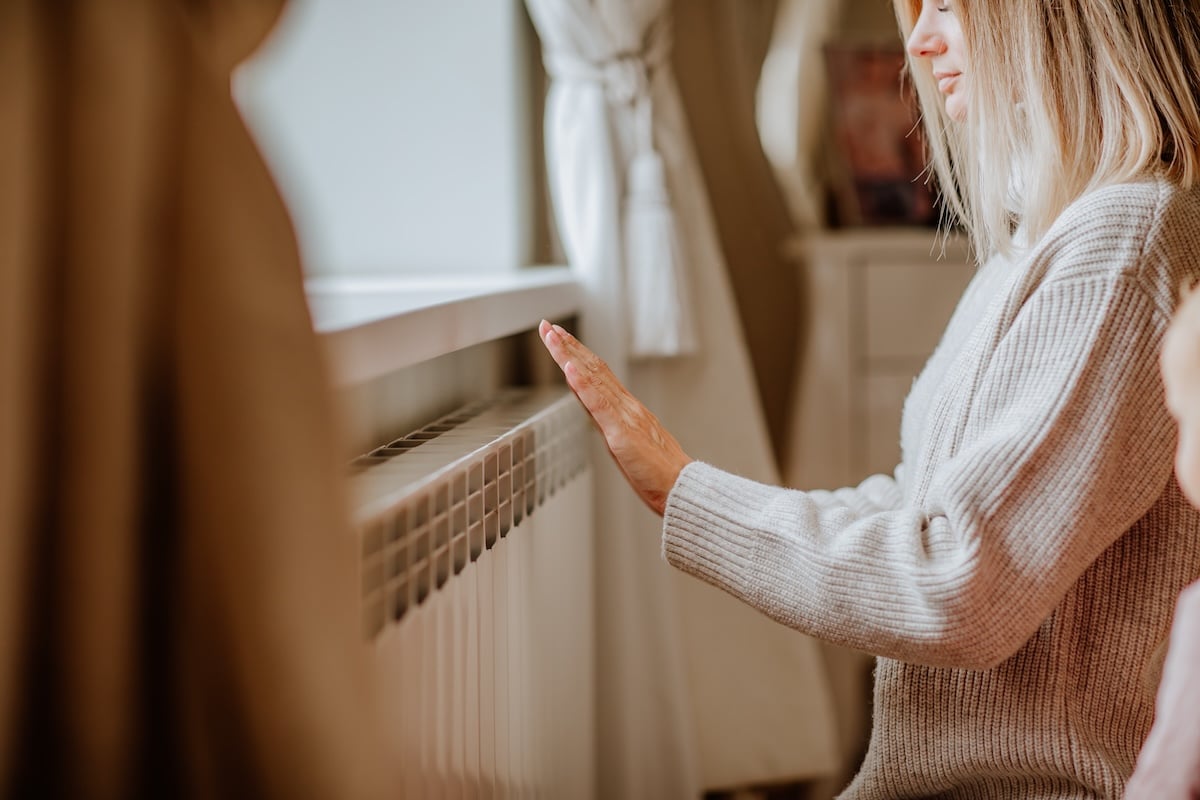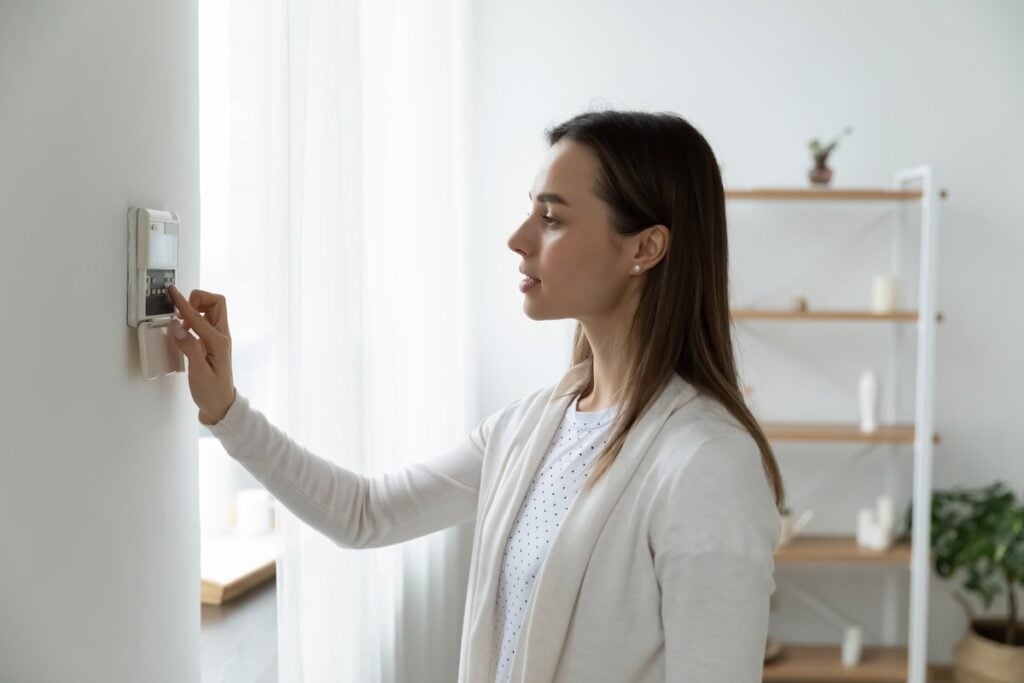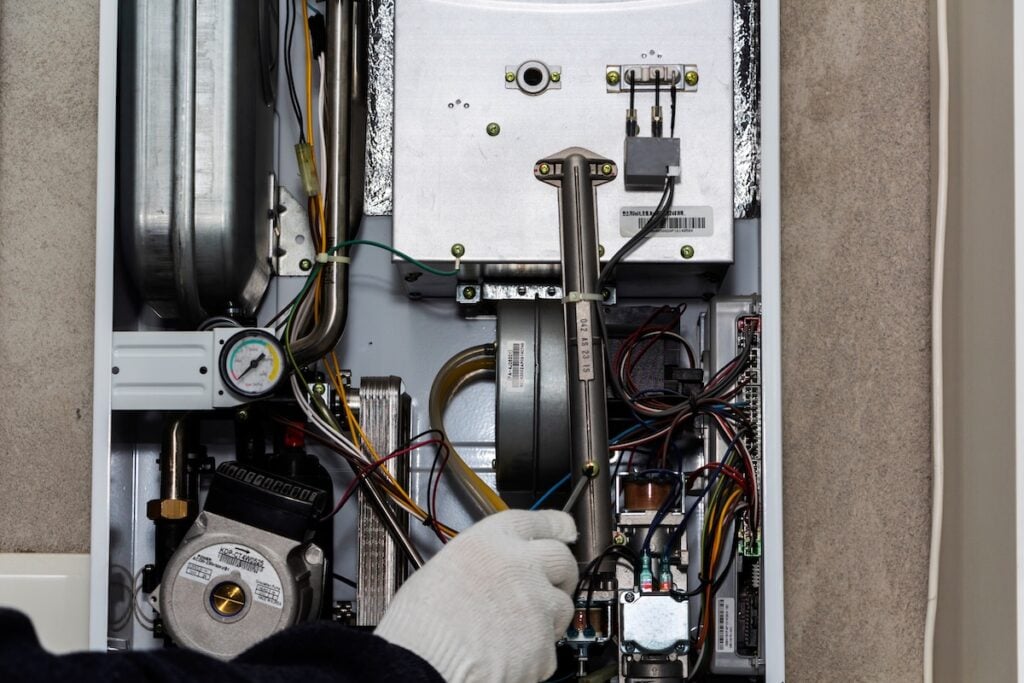


October 10, 2025
How to Save Money On Heating Bill & Maintain Comfort
When winter arrives, most families brace themselves for higher utility bills. Staying warm is essential, but that doesn’t mean you should overpay for it. If you’ve been researching how to save money on heating bill, the truth is that comfort and savings can go hand-in-hand. With a mix of smarter habits, system care, and small upgrades, you can lower costs without piling on the blankets. Professional heating services also play a key role in keeping bills predictable all season long.
In this guide, you’ll discover:
- Why heating efficiency matters for comfort and cost savings
- Actionable ways to reduce bills without sacrificing warmth
- Seasonal and lifestyle strategies homeowners often overlook
- Maintenance insights that keep your system running at its best
- Signs it’s time to bring in professional support
🏠 Why Heating Efficiency Makes a Big Difference

Your heating system is one of the hardest working appliances in your home. The way it’s used and maintained impacts more than just your wallet.
- Lower Bills: An efficient system requires less fuel or electricity to do the same job.
- Improved Comfort: Balanced systems heat evenly, preventing cold rooms or drafts.
- Less Stress on Equipment: Efficiency reduces wear and tear, meaning fewer breakdowns.
- Healthier Air: Properly serviced systems maintain cleaner airflow and better humidity balance.
💡 6 Everyday Habits That Cut Heating Costs
Heating savings don’t always come from big investments. Your daily routines can have a powerful impact.
1. Layer Smart Instead of Raising Heat
Wearing warm socks, sweaters, and keeping cozy throws nearby helps your body stay warm without relying on higher thermostat settings. This simple habit keeps energy costs lower while maintaining comfort.
2. Cook and Bake Strategically
On colder evenings, plan meals that use the oven. Once cooking is done, leave the oven door slightly open (only if it’s safe) to let the residual heat spread through the kitchen and dining area.
3. Close Doors in Unused Rooms
There’s no need to waste heat on rooms you rarely use. By keeping doors closed, you concentrate warmth where it matters most, helping your home feel cozier without extra energy use.
4. Use Rugs on Hard Floors
Tile, hardwood, or laminate floors can feel chilly and allow heat to escape. Adding rugs creates insulation while also making the space more comfortable underfoot.
5. Block Drafts with Simple Fixes
Small gaps under doors and around windows let warm air escape. Rolled towels, draft stoppers, or even heavy curtains provide quick, inexpensive ways to keep the warmth inside.
6. Turn Down Heat When Entertaining
When friends or family gather, body heat naturally raises the temperature indoors. Lowering your thermostat a couple of degrees keeps everyone comfortable and saves energy at the same time.
🧣 Seasonal Strategies Homeowners Overlook
Shifting your habits with the seasons ensures consistent savings.
- Late Fall: Schedule duct cleaning before you start running heat daily. Dust buildup makes systems work harder.
- Peak Winter: Check window locks. Even slightly loose latches let in cold air.
- Early Spring: Reduce thermostat use on sunny days and open curtains to rely on passive solar heat.
- Year-Round: Use a programmable thermostat to keep changes automatic instead of manual.
🔍 Hidden Factors That Drive Up Heating Bills
Not all heating problems are obvious. Some causes quietly raise your bills until you notice a pattern. Hopefully these give you a better idea of what to look for.
- Leaky Ductwork: Up to 30% of heated air can escape through cracks in ducts. Professional sealing makes a major difference.
- Poor Insulation: Older homes with minimal attic insulation lose heat quickly, forcing systems to run longer.
- Outdated Thermostats: Manual thermostats lack precision. Smart thermostats adapt to your schedule and weather conditions.
- Oversized or Undersized Units: A system that’s the wrong size for your home cycles inefficiently, wasting energy and straining components.
🛠️ Maintenance Moves That Pay for Themselves

Preventive care is one of the easiest ways to keep heating bills down.
- Filter Changes: Clogged filters make the system work harder. Replace them every 1–3 months.
- Annual Tune-Ups: Professional inspections catch issues early and keep efficiency high.
- Vent Checkups: Ensure vents are open, unobstructed, and clean for balanced airflow.
- Humidity Control: Dry air feels colder. Adding a humidifier lets you stay comfortable at lower thermostat settings.
💵 Comparing Low-Cost Fixes vs. Bigger Investments
Some improvements cost very little, while others require upfront spending but bring long-term returns.
| Upgrade Type | Cost Range | Impact on Bill | Best Use Case |
| Weatherstripping | $20–$100 | 5–10% savings | Drafty doors/windows |
| Smart Thermostat | $200–$400 | 8–12% savings | Families with varied schedules |
| Duct Sealing | $800–$2,000 | 20% savings | Older homes with leaky ducts |
| New Furnace | $5,000–$9,000 | 20–30% savings | Units 15+ years old |
| Attic Insulation | $1,500–$3,000 | 15–20% savings | Homes built before 2000 |
🧾 Common Questions About Heating Bills
Heating bills can feel confusing, especially when trying to balance comfort with efficiency. Many homeowners wonder which habits and small changes can actually save money without overworking their system. Below are some common questions with clear answers to help guide you.
Should I Close Vents In Unused Rooms?
No. Closing vents can create pressure imbalances that strain your system, leading to higher wear and tear. Instead, consider zoning solutions or installing dampers that direct airflow more efficiently throughout your home.
Is It Cheaper To Run Space Heaters?
Sometimes. Space heaters are efficient for small, occupied rooms but expensive for whole-home heating. They work best as a supplement to central heating when you only need warmth in a single area.
Does Running The Fan Help In Winter?
Yes, if set correctly. Many furnaces allow the fan to circulate warm air continuously, evening out room temperatures. This can help prevent cold spots and make your home feel more consistently comfortable.
Can Regular Duct Cleaning Lower Bills?
Yes. Clean ducts improve airflow and reduce strain, especially in homes with pets or high dust. Improved efficiency often translates into lower monthly heating costs and better air quality.
🧭 Signs It’s Time to Call a Professional

DIY efforts can only go so far. These red flags signal the need for expert help:
- Bills rising year after year despite no change in use
- Cold spots or uneven heating in multiple rooms
- Furnace frequently cycling on and off
- Loud noises or unusual odors during operation
- System is more than 15 years old and repairs are adding up
👨🔧 Ready to Lower Your Heating Costs?
Keeping warm shouldn’t mean draining your wallet. With practical daily habits, seasonal adjustments, and a commitment to system maintenance, you can enjoy comfort and savings together. For bigger improvements, professional care ensures your system works at peak efficiency.
If you’re ready to get expert help reducing heating costs or want a professional inspection before the next cold front, contact us today to schedule your appointment.


